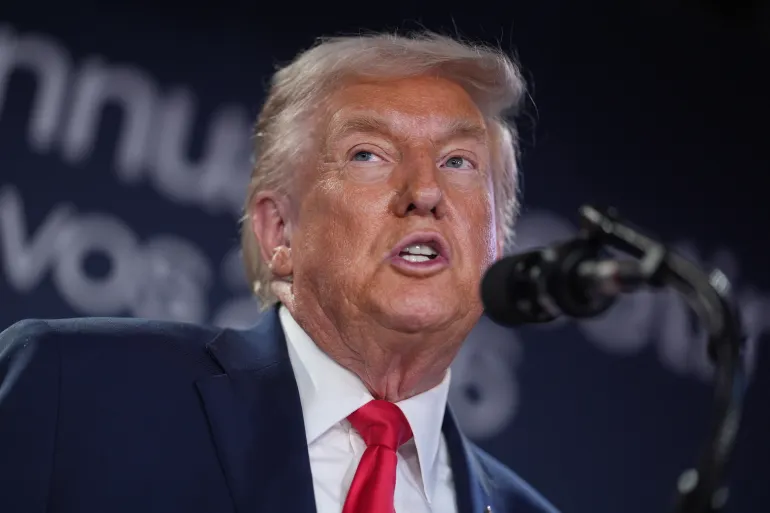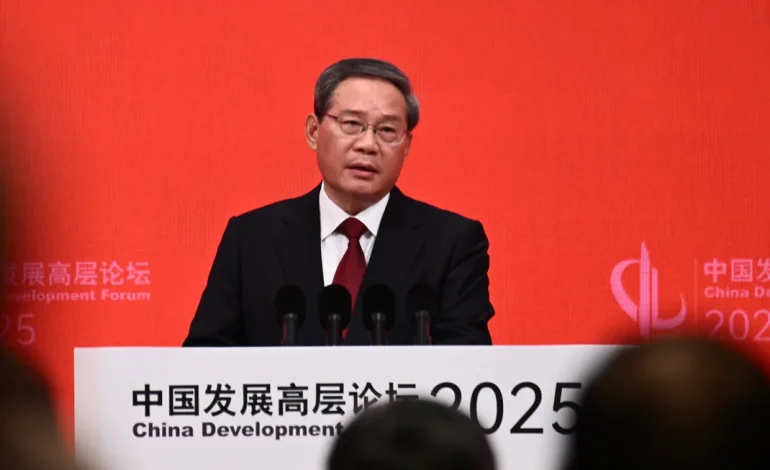China has called on global businesses to resist protectionism and support economic globalization as it faces growing trade tensions with the United States.
Speaking at the China Development Forum in Beijing, Premier Li Qiang urged multinational executives to embrace open markets and warned against economic fragmentation.
Addressing an audience that included top executives from Apple, FedEx, Pfizer, and Qualcomm, Li cautioned that efforts to “decouple and break supply chains would only deepen crises.” He emphasized China’s commitment to market openness, pledging to further expand access for foreign investors in various sectors.
“If the world returns to the law of the jungle, it will be a step backward in history and a tragedy for humanity,” Li stated.
The annual China Development Forum serves as a platform for engagement between Chinese officials and foreign business leaders. This year’s gathering is particularly significant as tensions between China and the United States escalate due to trade restrictions and new tariffs.
The event took place amid heightened trade uncertainties following recent US policy moves. Since taking office in January, President Donald Trump has imposed an additional 20% tariff on all Chinese imports, citing concerns over trade imbalances and alleged unfair practices. In response, China has introduced its own tariffs on US goods and implemented export controls on critical raw materials.
As discussions at the forum unfolded, US Senator Steve Daines, a known ally of Trump, met with Premier Li Qiang. Daines described the meeting as a “first step” toward potential talks between Trump and Chinese President Xi Jinping, hinting at possible diplomatic engagements in the near future.
Amid China’s slowing economy, declining foreign investment, and a sluggish real estate market, Beijing has been actively seeking to attract global businesses. Vice Premier He Lifeng reassured corporate leaders from Apple, Pfizer, Mastercard, and other multinational firms that China remains committed to creating a favorable business environment.
“China will continue to improve the business environment and welcome more investment by multinational companies in China, sharing opportunities for development,” He said.
Lifeng described the country’s economy as “highly resilient” and “full of vitality.”
However, concerns about geopolitical risks and regulatory uncertainties have made some foreign businesses cautious about expanding their operations in China. Recent government measures, including the detention or questioning of employees from certain foreign firms, have raised further questions about China’s business climate.
At the forum, corporate executives shared perspectives on navigating shifting trade policies and the evolving global economic landscape.
- Inter IKEA Group CEO Jon Abrahamsson Ring emphasized the importance of open trade.
He stated, “We are firm believers in an open, rule-based trade system that enables global cooperation and scale.”
- Boston Consulting Group’s Global Chair Rich Lesser highlighted the need for businesses to adapt to rapid shifts in technology, geopolitics, and sustainability.
He noted that:
“Short-term disruptions demand immediate attention, but the longer-term shifts will reshape trade for decades.”










The latest news in your social feeds
Subscribe to our social media platforms to stay tuned